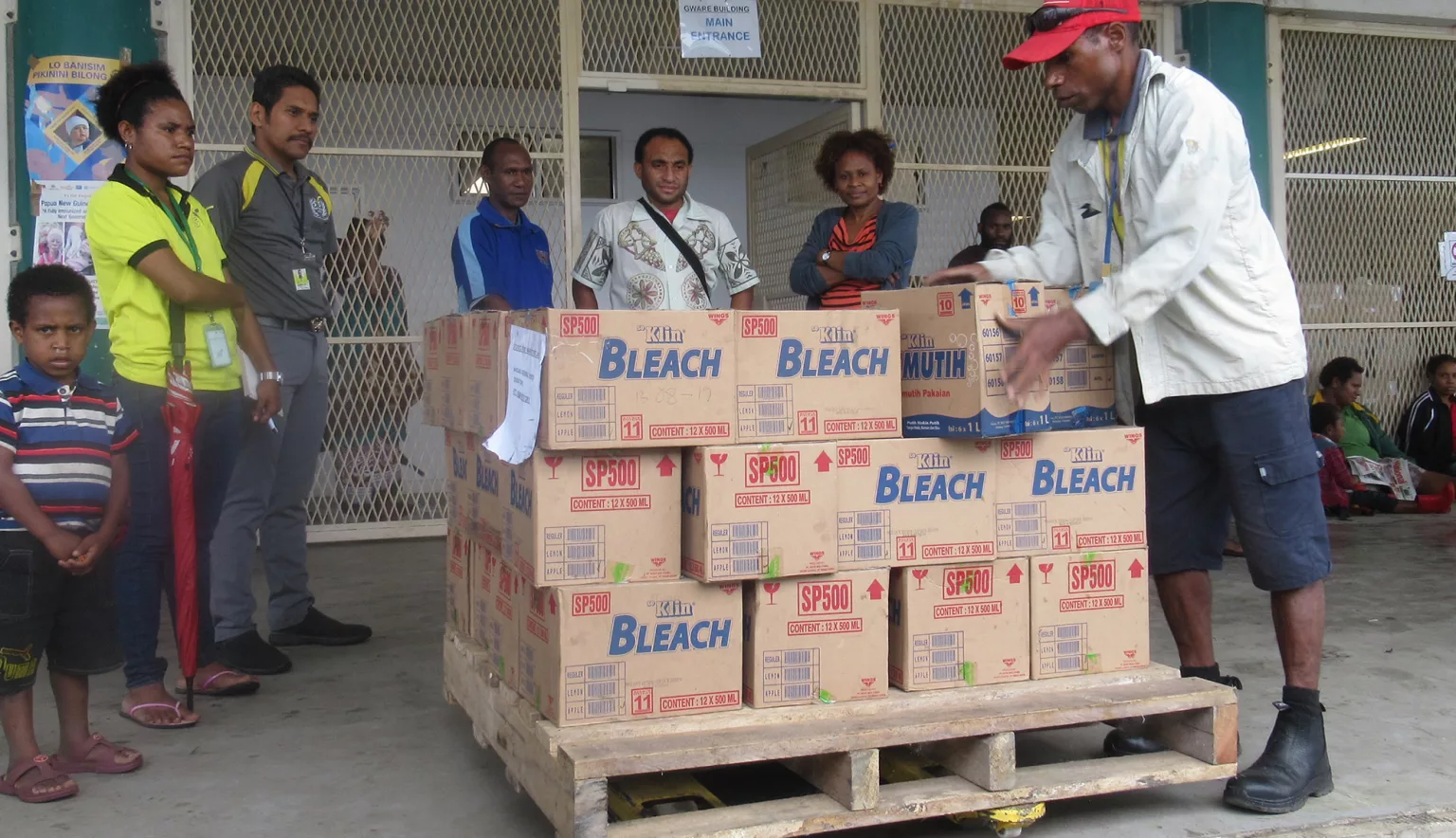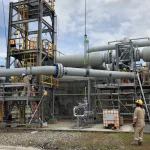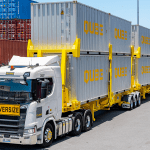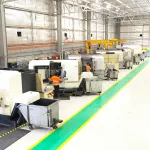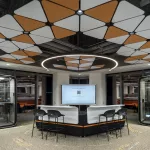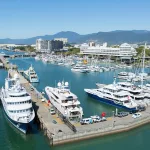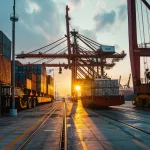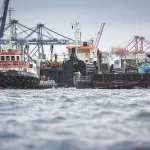For PNG-based business Super Value Stores, wholesale and retail is all about creating customer benefit by providing better products at better prices.
ENHANCING QUALITY, EXPANDING QUANTITY
Renowned as one of Asia Pacific’s most resource-rich nations, Papua New Guinea has made great strides in recent decades.
Between 1967 and 2017, GDP per capita grew from just $196 to $2,556, the country having continued to capitalise on a booming exports industry underpinned by various commodities such as gold, timber, fish and natural gas.
More recent times have witnessed a shift away from this export-led growth, however. Owed to a national drive geared towards achieving environmentally sustainable economic prosperity, other industries such as the retail sector have come to the fore.
This, coupled by increasing urbanisation and a rising middle class, has facilitated the gradual replacement of the traditional informal retail segment with shopping centres and modern stores, paving the way for a number of different businesses, be it automotive, industrial or grocery retailers, to thrive.
And in the eyes of Lalani Hanafi, Executive Director of local wholesale company Super Value Stores (SVS), everyone’s a winner.
“Wholesale and retail development undoubtedly improve quality of life by improving the quality of goods distributed to the population,” she states. “For example, we’re able to provide better options for proper nutrition to growing infants like milk and instant baby food filled with vitamins instead of just plain rice porridge or mashed tapioca or papaya.
“Medication and vitamins in Papua New Guinea are overpriced and unaffordable to the average Papua New Guinean, so SVS tries to ensure its products provide health benefits and fill our customers’ stomachs without emptying their pockets.
“The satisfaction of finding goods that offer value for money and getting positive feedback from our customers brings joy to the work, for sure.”
BRINGING BENEFITS FOR ALL
Indeed, Hanafi is not naïve to the fact that the industry remains in a relatively infant state and challenges remain.
“Unfortunately, there are still many gaps in this community to fill,” she affirms. “But this does mean there is room to grow, lives to be improved and a difference to be made, and that is exciting!”
Achieving this is a core part of the overriding mandate of Super Value Stores.
Established in 1986, the company has risen to become one of the country’s leading retail and wholesale players, remaining ahead of the curve by consistently seeking greater value for its customers. “We focus on better products and better price – not one or the other,” Hanafi states.
Primarily a wholesale business, the company sells everything from groceries to beauty products, clothing, textiles, footwear, electronics and bicycles by the container load, its distribution footprint spanning 22 provinces in PNG.
The majority of its operations stem from a core logistics hub in Lae, the country’s key industrial hub and largest cargo port, located near the delta of the Markham River and at the start of the Highlands Highway, which is the main land transport corridor between the highlands region and the coast. In addition, however, it operates warehouses in Mount Hagen and Kokopo – facilities that expand the company reach to the highlands and New Guinea Islands respectively.
“We also run a supermarket and department store in Lae at Top Town, the central area of the city, and along with other partners, a supermarket and sports retail outlet in Port Moresby, the capital,” the Executive Director adds, before pointing to the role of its suppliers as crucial to the success of the enterprise.
Maintaining close working, mutually beneficial relationships with many of its business partners, the firm is able to consistently bring new, improved and diversified products to PNG while simultaneously providing the platform for many brands to become market leaders in their respective product categories.
“We are the sole distributors or agents for a number of our products in PNG, so distribution and growth become a team effort between us and our suppliers. For this reason, our relationships with them are very important,” Hanafi affirms.
CHAMPIONING COMMUNITY-LED CHANGE
Unquestionably, much of the same can be said for the business’s relations with both its staff and the surrounding communities in which it operates.
The latter, encapsulated by an extensive corporate social responsibility programme, is a major focus of the company, the business running a host of different initiatives from its Supa V projects that stand as containerised convenience stores to regular donations for earthquake victims, churches and hospitals.
Arguably the most important of these community-centric efforts, however, is the firm’s empowerment of education.
Hanafi explains: “The lack of local infrastructure and distress this country faces, in the areas of social crime, health, internet connectivity, safe public transportation and poverty, begins with poor education.
“Owed to an absence of quality knowledge and skills and the high cost of education, there are a large number of dropouts at both primary and secondary levels. This makes it very challenging to find talent and, more importantly, talent of integrity.
“As an enterprise that has been part of this society for more than 30 years, we want to be part of the solution to this problem.”
To this end, the Executive Director and her team are in the process of setting up the Super Value Stores Foundation – what will be a non-profit social investment division of the company that will prioritise education improvements alongside family-orientated initiatives and community action plans.
“Whether it’s focusing our efforts on helping children, women and healthcare or helping local communities in the areas of law and order, grassroots sports and climate change, we’ll continue to try to make a difference wherever possible,” Hanafi affirms.
And it is clear that similar attitudes translate into the firm’s employment practices via the Super Value Stores Institute of Learning, launched in order to address the lack of external quality training institutes available for the business to engage by offering its own development programmes.
“We currently have over 300 employees, each of whom benefit from the SVS Institute of Learning,” Hanafi reveals. “Further, we have also been awarded the Good Corporate Citizen award in previous years, providing positive credentials for recruitment.”
FACING UP TO THE TASK
Moving forward, the aforementioned social upliftment efforts will be accompanied by an abundance of alternative, progressive and diversified investments.
The company is in the process of building on its existing service portfolio, looking into the potential benefit of implementing a customer relationship management system and expanding its ecommerce presence.
“We’re also diversifying into exports and beginning to assist local agricultural industries,” Hanafi adds.
And while each of these progressive strides will continue to take Super Value Stores to new heights, the Executive Director is equally quick to reemphasise the fact that numerous challenges remain.
She concludes, advocating for numerous changes to be made to ensure that the wholesale and retail industry can thrive in PNG in the long term: “Doing business in PNG is by no means easy. Operating costs such as electricity, the transportation of goods and security expenditure remain high, and a lack of foreign exchange in recent years has failed to help address these issues.
“The government has also been trying to encourage investors to set up local manufacturing plants by increasing import tariffs. And while this serves its purpose to an extent, there is not a quality control institution ensuring that the products manufactured locally are done at a respectable level of quality.
“This may altogether harm the end consumers because if they want cheaper products then the quality will be unsatisfactory, and if they want better quality products then they are unable to afford them.
“Equally, the retail industry has become inundated with many enterprises that do not play by the rules. The government and Internal Revenue Commission are tightening up on the collection of good and services tax, corporate income tax and salary withholding tax, but focusing only on registered companies, killing their golden goose. The focus should be on those operating whilst getting away with under declaring taxes, import tariffs, fake copies and parallel imports that do not meet the supposed import regulations in English packaging and quality.
“Yet, despite these hurdles, we hope to continue growing through internal improvements in corporate governance, improved efficiency and effectiveness, and a potential boom set to follow the country’s second LNG project and a major upcoming gold mine.”

